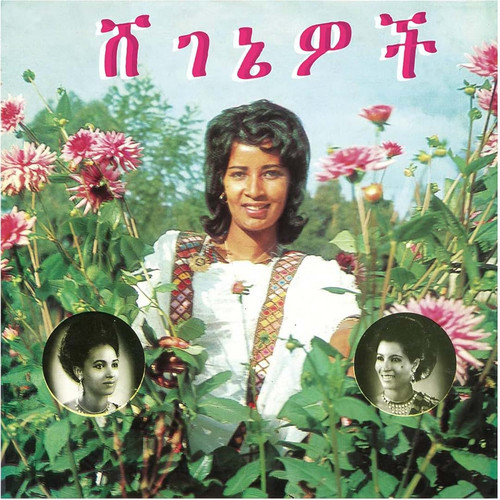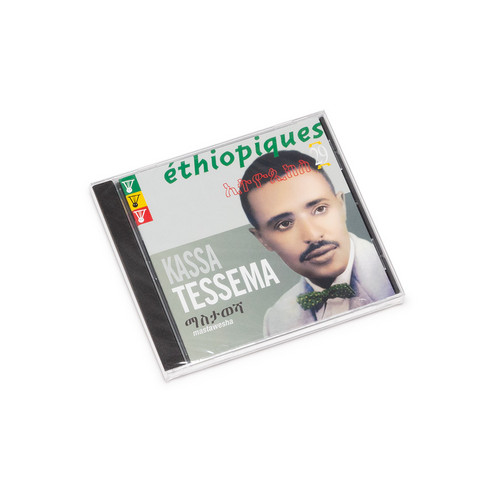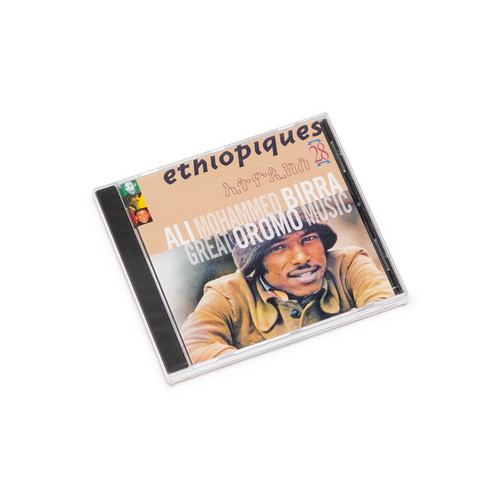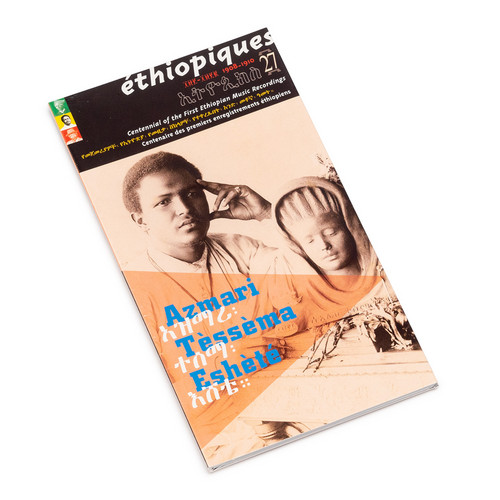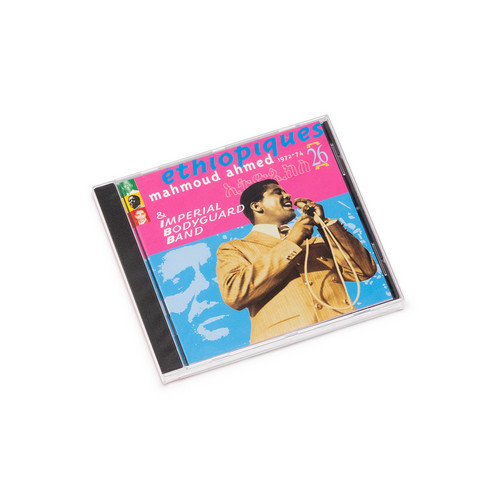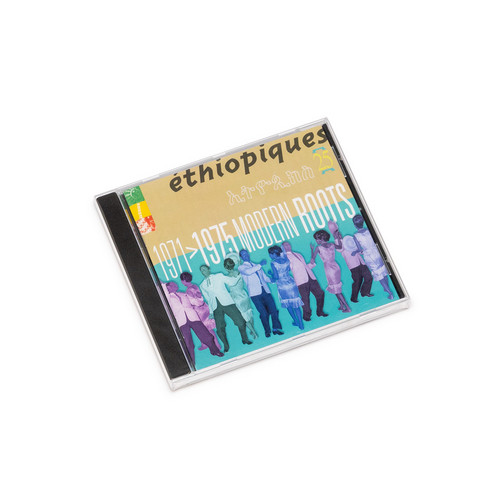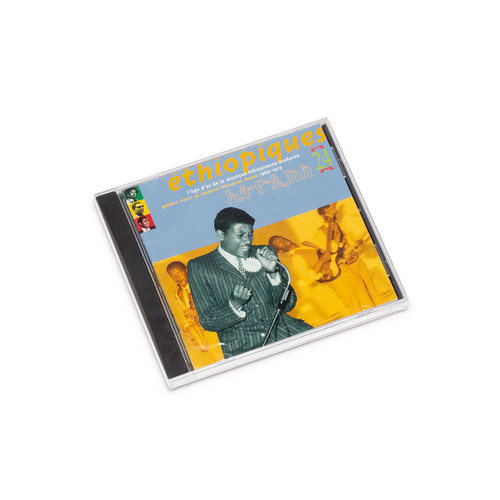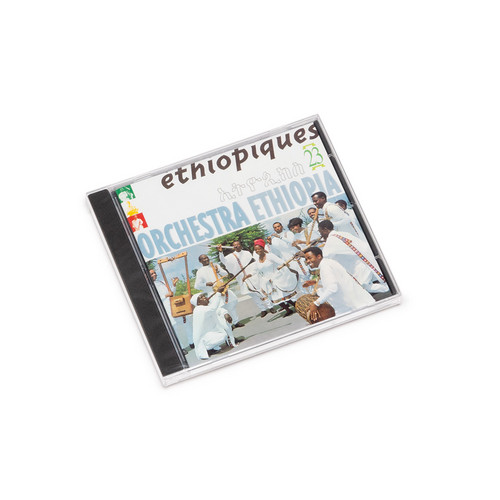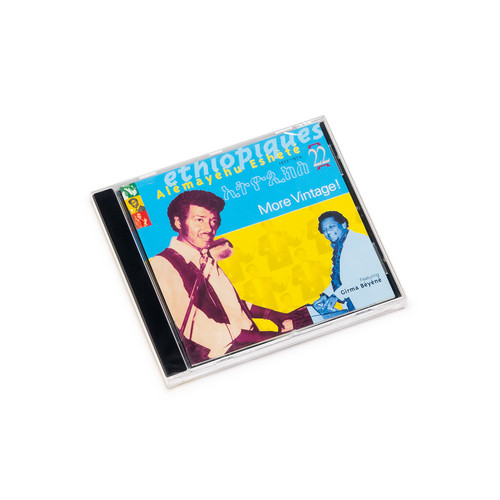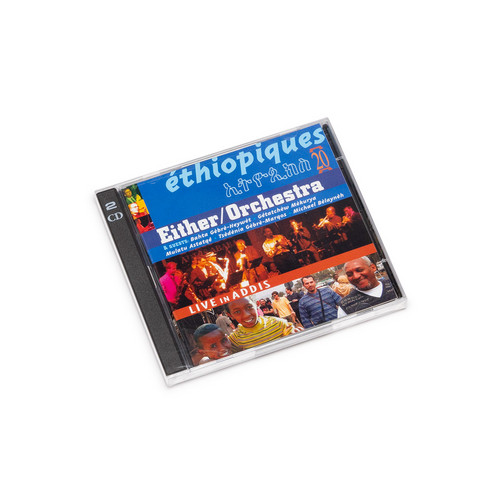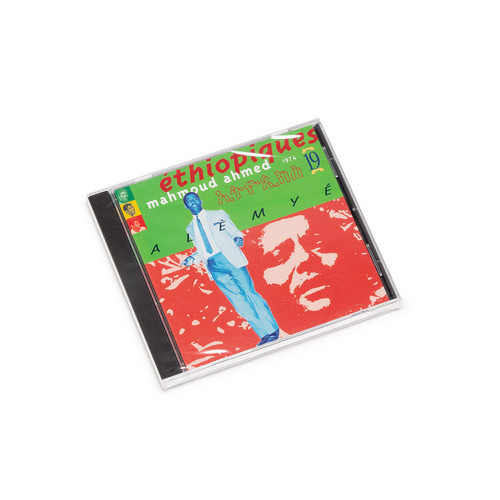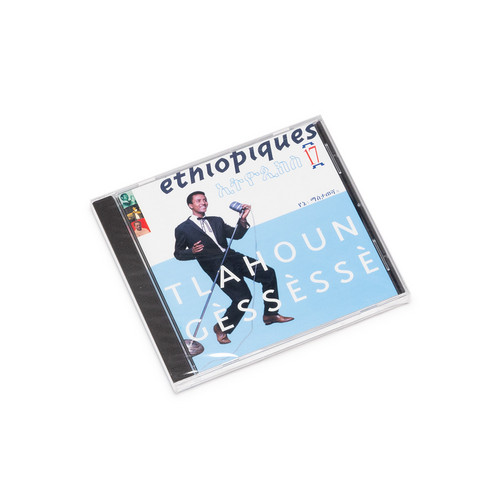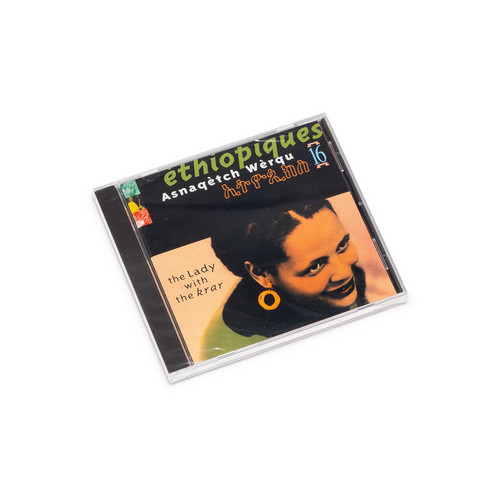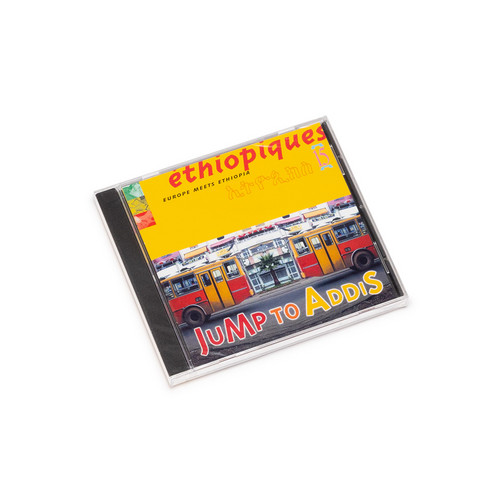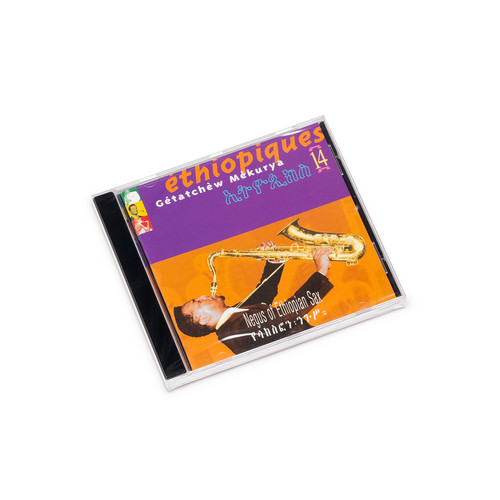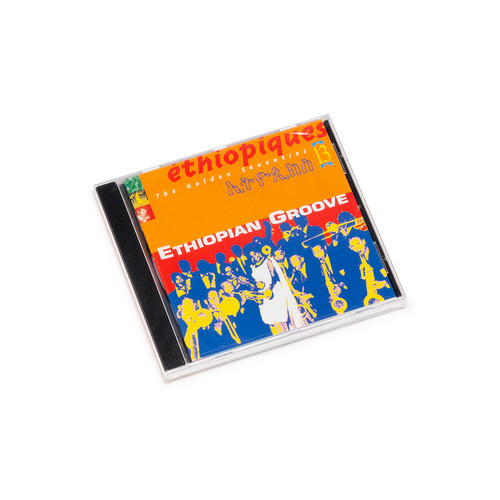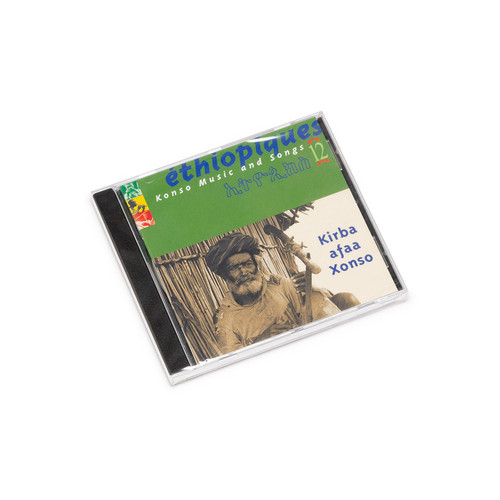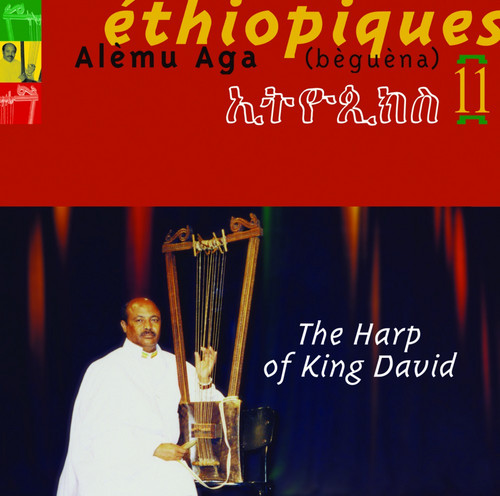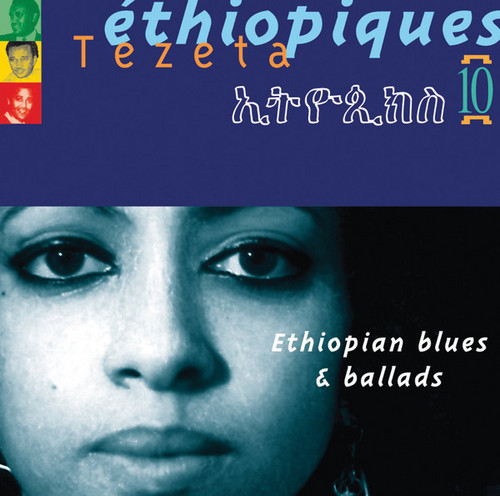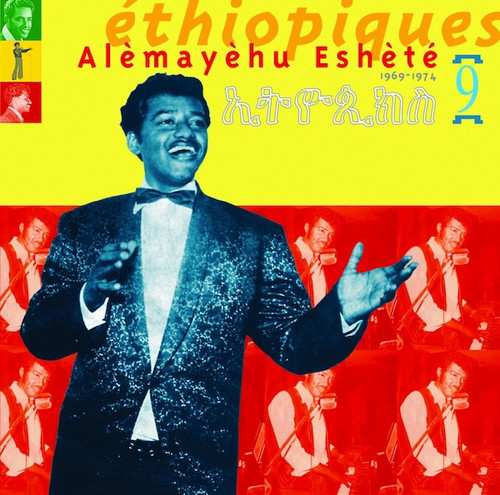Folk /
Beauties
A lost classic of the Ethiopian Golden Age, reissued in full for the first time! On this 1976 gem of a record, Aselefech Ashine and Getenesh Kebret’s voices intertwine in close harmony, the two “beauties” singing in duet across 10 gorgeous tracks. The Army Band, which backed greats like Tlahoun Gesesse and Mahmoud Ahmed, brings Mulatu-esque minor-key piano runs, interlocking percussion, and rock-steady basslines. Arranger Teshome Sisay’s flute winds through the compositions, tying together glori…
Éthiopiques 29: Mastawesha
*2024 stock* Kassa (1927-1973) belongs to the long tradition of melancholy raconteurs with a decided gift of gab. The unique embrace of his deep voice heightens the emotion generated by the hum of his lyrics. For Ethiopians he is, along with such other great post-war voices as Assèfa Abatè, Fréw Haylou, Asnaqètch Wèrqu or Kètèma Mèkonnen, a perfect example of the culture of the word: poetry and freedom of expression, wit and impressive verve that hits the mark, quiet vehemence and merciless loqu…
Éthiopiques 28: Great Oromo Music
*2024 stock* For a long time downplayed and deprived of any recognition whatsoever, oromo music is one of the liveliest Ethiopian musical traditions. This 28th volume of Ethiopique pays tribute to Ali Birra, the man in whom Oromo music has irrepressibly affirmed itself since the 1960s. A very unusual groove, very different from gouragué, amhara and tigrignarhythms, a relentless quest for identity and, on top of that, a guitar style that would stand out anywhere. (Most of the pieces presented her…
Éthiopiques 27: Centennial Of The First Ethiopian Music Recordings
*2024 stock* Centennial of the First Ethiopian Recordings Double CD The life and work of Tessema Eshete, the first Ethiopian singer to record commercially. 32 historic songs recorded in Berlin in 1910
Éthiopiques 26: Mahmoud Ahmed & The Imperial Bodyguard Band (1972-74)
*2024 stock* “An authentic legend in Ethiopia, Mahmoud Ahmed has set the bases of a truly original musical style in that he synthesizes the most diverse influences into a language both typical and universal. With his haunting, husky and velvety voice that rises up in wild spirals, Mahmoud Ahmed has invented a world of uncertain borders, an unlikely mix of East-African rhythmic turns, mysterious melodies with refined ornamentation and surprising Indian inflections, all this streaked with electric…
Éthiopiques 25: 1971-1975 Modern Roots
*2024 stock* The Swinging Addis of the 1960s and early 1970s (before the dreadful Derg’s Stalinist-military glaciation) was a period of intense experimenting that encompassed the traditional repertoire. Whether Oromo or Amhara, all the greatest voices of the time took part with intense creative fervour, as can be heard on this 25th CD in the Ethiopiques collection. It features such pop singers as Tlahoun Gèssèssè, Alèmayèhu Eshèté, Sèyfou Yohannes, Essatu Tèssèmma etc. as well as traditional art…
Éthiopiques 24: Golden Years Of Modern Ethiopian Music 1969-1975
*2024 stock* As was the case with Ethiopiques 1 and 3, this 24th CD in the Ethiopiques collection presents a selection of powerful pieces from the historical Amha Records catalogue. We meet again with such artists as Ayaléw Mèsfin, Gétatchèw Kassa and Sèyfou Yohannes, and are introduced to other artists as yet unreleased or hardly known in the West, among them Menelik Wèsnatchèw, Seyoum Gèbrèyès, Tamrat Molla and Wubshèt Fisseha. Bonus tracks: Two pieces by the young Mulatu Astatqé, recorded in …
Éthiopiques 23
*2024 stock* The story of Orchestra Ethiopia (1963-1975) is unusual and compelling in more ways than one. Just as modern music was reaching the peak of its excellence and popularity, at the very same moment, via Orchestra Ethiopia's unlikely undertaking, traditional music acquired a legitimacy that the times had tended to deprive it of. Between the coup d'état (Dec 1960) and the revolution (1974), Ethiopia was combining, unbeknownst to all, both the end of an empire and the "golden age" of its m…
Éthiopiques 22: More Vintage! 1972-1974
*2024 stock* Alèmayèhu Eshèté is no less than one of the great voices of the heyday of modern Ethiopian music -- the Swinging Sixties which, in Ethiopia, went on until the fall of the Emperor Haile Sellassie I in 1974. On a par with Tlahoun Gèssèssè, Bzunèsh Bèqèlè or Mahmoud Ahmed, Alèmayèhu is a star at the top of the constellation that once lit up the wild nights in the capital city Addis Ababa. The singer, as remarkable for his frenetic rock numbers as for his heart-rending ballads, has, by …
Éthiopiques 20: Live In Addis
*2024 stock* Russ Gershon and his Grammy-nominated Either/Orchestra have included many Ethiopian pieces into their repertoire in recent years. In January 2004, the Boston big band travelled to Addis for a dream-come-true concert featuring prestigious Ethiopian guests, among them Mulatu Astatqè (Ethiopiques 4, «Broken Flowers») and Gétatchèw Mekurya (Ethiopiques 14). This recording perfectly renders the energy and emotion of this gathering, with beautiful arrangements remarkably performed by exce…
Éthiopiques 19: Alèmyé
*2024 stock* «An authentic legend in Ethiopia, Mahmoud Ahmed has laid down the basis of a music style which is resolutely original in the way it synthesizes the most diverse influences into a language both typical and universal. With his haunting, serpentine voice, at the same time raucous and velvety, Mahmoud Ahmed has invented a world of uncertain borders, an improbable mix of Eastern-African rhythmic lines, mysterious laments with refined ornamentation and melodies of unexpected Indian modula…
Éthiopiques 17: Tlahoun Gèssèssè
*2024 stock* To Ethiopian audiences, Tlahoun Gèssèssè is THE VOICE, even more so than Mahmoud Ahmed, Alèmayèhu Eshèté or Mulatu Astatqé. Endowed with a phenomenal, innate vocal talent, he has been the asbsolute and unequalled icon for an entire country since the fifties, heading up the list of Ethiopian discography. Based around seven ‘modernist’ pieces arranged by the brilliant and innovative Mulatu Astatqé (Ethiopiques 4 : «Ethiojazz»), these first Ethiopiques devoted to Talhoun Gèssèssè also …
Éthiopiques 16: The Lady With The Krar
*2024 stock* Before she became famous as a singer and a player of the krar –the traditional Ethiopian lyre– Asnatqèch Wèrqu was well-known as an actress and a dancer. Inspired by the art of the 'azmaris', the Ethiopian wandering minstrels, she found the voice to transform the vicissitudes of life into poignant laments or sarcastic ditties. Asnatqèch is the last great singer, story-teler and free-thinker to carry on the tradition of "poetic jousting". Needless to say, the CD booklet features the …
Éthiopiques 15: Europe Meets Ethiopia
*2024 stock* The result of a surprising encounter between Ethiopian, French and Dutch musicians, Jump to Addis presents a buoying mix of Abbyssinian tradition, revisited jazz and wild rock'n'roll. The krars (folk lyres) and voices of urban azmaris rub shoulders with the guitars, saxophones and drumsets of European musicians, all in an audacious blend.
Éthiopiques 14: Negus Of Ethiopian Sax
*2024 stock* Probably the most revered veteran of Ethiopian saxophone, Gétatchèw Mèkurya is the 'inventor' of an extremely distinctive musical style. Amongst Ethiopia's numerous vocal genres, there exists a form of singing that is purely warlik: epic and declamatory, harsh and hoarse-voiced, it is known as 'shellela'. This bellicose thunderbolt, quite strictly vocal, was improvised before each attack. Gétatchèw Mèkurya had the brilliant idea of transposing the genre to his saxophone, and here we…
Éthiopiques 13: Ethiopian Groove - The Golden Seventies
*2024 stock* An augmented, improved and remastered edition of the legendary anthology of Ethiopian groove that was issued in the 1990s. This selection is a tribute to the haydays of Ethiopian music and reproduces the final salvos of the musical fireworks before they were brutally extinguished by the dictatorship. 1969-78: this near-decade was undoubtedly the golden age of modern Ethiopian music, with its swinging, thunderous or simply gigantic brasses and historic singers adapting and rearrangin…
Éthiopiques 12: Konso Music And Songs - Kirba Afaa Xonso
*2024 stock* The Ethiopiques series aims to make Westerners discover the missing link in African music. The great Italian musicologist Enrico Castelli has devoted this recording to the Konso, an ethnic group living at the border with Sudan. This panorama of Konso music presents pieces linked to daily agricultural tasks, sacred and ritual songs, as well as recreational songs. The rich instrumentarium includes "hibhara", "maayra" and "luutota" flutes, "kihayta" lyre to accompany songs, "tawna" be…
Éthiopiques 11: The Harp Of King David
*2024 stock* Although commonly know as "King David's harp", the bèguèna is not actually a member of the harp family. It is in fact an oversized lyre with ten strings –usually plucked, sometimes strummed with a plectrum. It is probably the oldest musical instrument played in Ethiopia. One of today's uncontested masters of the bèguèna, Alèmu Aga, sings religious songs, traditional fables and folk tales, as well as his own poems. Meditative, devotional or uplifting sor some, simply "mind blowing" f…
Éthiopiques 10: Tezeta - Ethiopian Blues & Ballads
*2024 stock* Emptiness, melancholy, nostalgia; doom and gloom, morbid musings; heartache or homesickness: such is the stock in trade of the misery and mournful memories expressed by the song Tezeta - Ethiopia's majestic hymn to the blues. Etymologically, the word itself means memory, nostalgia, and several Ethiopian authors have used Tezeta as the title for their memoirs. For Ethiopians, it is the Tezeta genre that seems to capture the essence of the blues.
Éthiopiques 9 (1969-1974)
*2024 stock* The Alèmayèhu songs already presented in Ethiopiques 3 and 8 have given a foretaste of this outstanding stylist of Ethiopian pop, a singer as remarkable for his frenetic rock numbers as for his heartrending ballads. By dint of rampant Americanism, he earned himsef such nicknames as The Ethiopian James Brown or the Abyssinian Elvis. With his dazzling stage presence, nimble voicebox and wicked pompadour, he is a strutting show-off, straight out of American Graffiti or Saturday Night F…
